 Washington, 20 Ramadhan 1434/28 July 2013 (MINA) – US President Barack Obama has sent a letter to Egypt’s interim president Adli Mansour, reaffirming Washington’s commitment to giving “a second chance” to put country’s post-uprising transition back on track.
Washington, 20 Ramadhan 1434/28 July 2013 (MINA) – US President Barack Obama has sent a letter to Egypt’s interim president Adli Mansour, reaffirming Washington’s commitment to giving “a second chance” to put country’s post-uprising transition back on track.
According to a statement released by Egypt’s presidency on Saturday, Obama said in his letter that the US will remain “a strong partner” to the Egyptian people as they shape their country’s path to the future, Press TV reported from Washington as monitored by Mi’raj News Agency (MINA).
The statement comes after Friday clashes between supporters of deposed president Mohamad Morsi and country’s army left scores of people dead in capital Cairo. It did not indicate when exactly Egyptian authorities received the US president’s message.
Obama also said he hopes that the transition “represents an opportunity to establish a civilian political system, characterized by democracy, transparency, tolerance, without exclusion, which respects the rights of all Egyptians.”
Also Read: Trump Approves New Weapons for Ukraine, Weighs Tougher Sanctions on Russia
Observers believe the US position towards developments in Egypt has been “reluctant” since the ouster of Morsi earlier this month.
On Friday, the US decided not to call the Morsi’s overthrow a coup, a move which would allow the $1.5 billion of US military aid to Egypt to continue unaffected.
US State Department spokeswoman Jennifer Psaki said it was in the US advantage to continue providing the aid to Egypt.
“Our national security interests influence our policy as it relates to aid with Egypt,” Psaki said. “We reviewed the legal obligations and determined we did not need to make a determination one way or the other.”
Also Read: Protesters Denounce Netanyahu’s White House Visit
US’ Egypt policies dysfunctional under Obama
What follows is an approximate transcription of the interview.
Press TV: Mr. Freeman we were discussing here with our guest in London, the arguments of both sides and what the solution should be. He believes that until the Muslim Brotherhood does not decide to come into the political scene and take part in the interim government, things are not going to change for the better. What do you think is the solution?
Also Read: Trump Hosts Netanyahu at White House
Freeman: Two things should occur especially with the recent appointments of some new people, not new people to Egypt but new people to the new cabinet. One is that the Muslim Brotherhood should become part of the political process for the constitution and elections that is going to occur over the next four, six and nine months. I think that is very important they have to align themselves to that political process in Egypt.
Two, is that the leadership in Egypt has to develop a comprehensive economic development program for Egypt as even part of the region. Without an actual improvement in the standard of living of ten Egyptian people, no government is really going to be stable.
So those were the two things that I would say need to occur in the near future.
Press TV: Mr. Freeman, you saw that comment there, I mean with the type of action that has been taken against the Muslim Brotherhood, for one the Muslim Brotherhood has been saying that we think that this is a coup d’état, it is absolutely illegitimate and we cannot say that when a democratically elected leader is ousted through a coup d’état, then we are going to accept it and we are going to compromise with the new government and then there is the issue of the Muslim Brotherhood people being arrested, their assets being frozen. So do you think that these are conditions that are going to help create dialog?
Also Read: Trump Delays Tariff Deadline to August 1
Freeman: The change in government that occurred was very dramatic, but also having 20 to 30 million people in the streets demonstrating against the Morsi presidency was also rather unique and I think there were features that led to the Morsi government that were flawed from the beginning, which I think some people are trying to correct now.
There should not be continued reprisals against the Muslim Brotherhood, but the Muslim Brotherhood has to make a decision. Are they going to be divisive, are they going to engage in violent activity? Are they going to provoke repression? Or do they want to move forward?
I think that the most important thing is that we give a vision to a country for a better future, which does require forward-thinking policies and economic policies and the Muslim Brotherhood will have to decide if they want to be part of that process.
If they do not and involve in violent activity or maybe even terrorist activities, then this is a serious problem and of course there are people outside of Egypt who are manipulating things. You have to look at things that go on in Great Britain, in Qatar and Saudi Arabia that are also having an effect on the situation inside Egypt itself.
Also Read: BRICS Condemns Israeli Occupation, Affirms Gaza as Part of Palestine
Press TV: Mr. Freeman, what do you think that visit (William Burn’s visit to Cairo) was all about? I mean both sides have been accusing the US of meddling in Egypt’s affairs. The Muslim Brotherhood is saying that the US is taking sides, the military-backed government or supporters of the interim government are blaming the US for supporting the Muslim Brotherhood.
So what side is the US on?
Freeman: Probably the US itself does not know what side it is on. The United States right now under President Obama has no clear policy for Egypt. They do not have a policy for Africa, they do not have a policy for the rest of the world. It is a very, very dysfunctional government that has no positive policy.
Up until the recent period, President Obama himself and his administration was backing President Morsi and the Muslim Brotherhood. However there were military ties from the US military, which were positive, to the Egyptian military, which essentially brought in a change in government that was certainly less violent than people had hoped for, but on the other hand until we, actually, have a policy which the Assistant Secretary Burns did not put forward, there is really no help that we are really giving Egypt.
Also Read: Crackdown on Press Continues: Israeli Forces Abduct Al Mayadeen Director in West Bank
I mean outside of the military component for the Israeli peace accords, I think, we give Egypt 250 million dollars which pathetic. We need water development, energy development, agricultural development.
So the United States is not providing direction and the other problem is that the US government was using President Morsi to carry out regime change against Bashar al-Assad. I think a few weeks ago, President Morsi declared his support for the insurgents, which are largely al-Qaeda-linked. This was also a turning point and that was in the interest of the regime change policy that President Obama and others are following.
So, the US has been trying to back and use the Morsi government, now it is trying to figure out how to stay…, keep some skin in the game but they are not offering any real policy or any real help.
Also Read: BRICS Call for Ceasefire and Israeli Withdrawal from Gaza
Press TV: Mr. Freeman, what do you think about Israel? Do you agree with what was just said about Israel’s position?
Freeman: Well, Israel certainly wants a stable Egypt, there is no question about it, but Israel is a problem. I mean you saw the other day, they attacked Syria again with their air force, they are menacing up the situation with their support for the overthrow of Assad, they have their own interests in the area including bringing the US into a confrontation with Iran.
So, Israel has a set of policies that are not helpful to the entire region and you have to look at the problems as a regional question and the players in the region and then the string pullers behind the players in the region to get a full comprehension of the complexity of the situation.
I think that there are elements in the US that want a stable government in Cairo and I think that is what all people of goodwill would like. (T/P012/E1)
Also Read: Trump Warns Additional 10 % Tariffs for BRICS-Aligned Nations
Mi’raj News Agency (MINA)






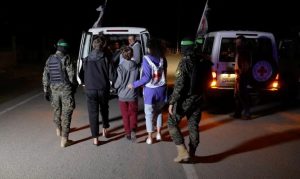
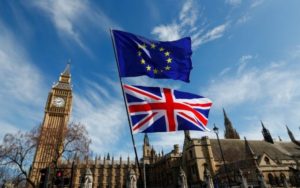


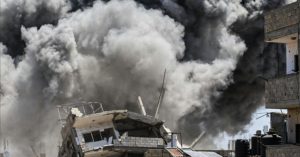
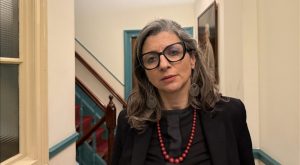
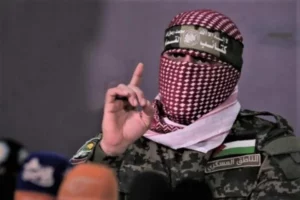




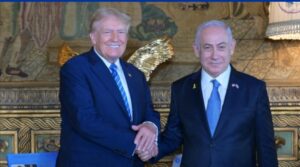

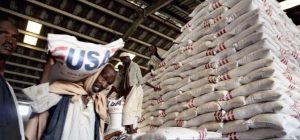
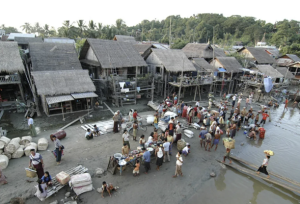
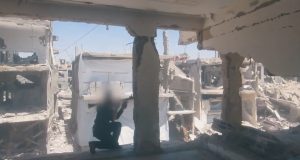

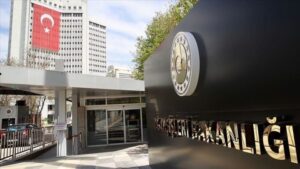
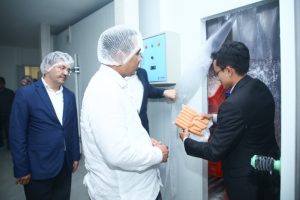
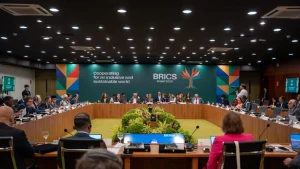



 Mina Indonesia
Mina Indonesia Mina Arabic
Mina Arabic